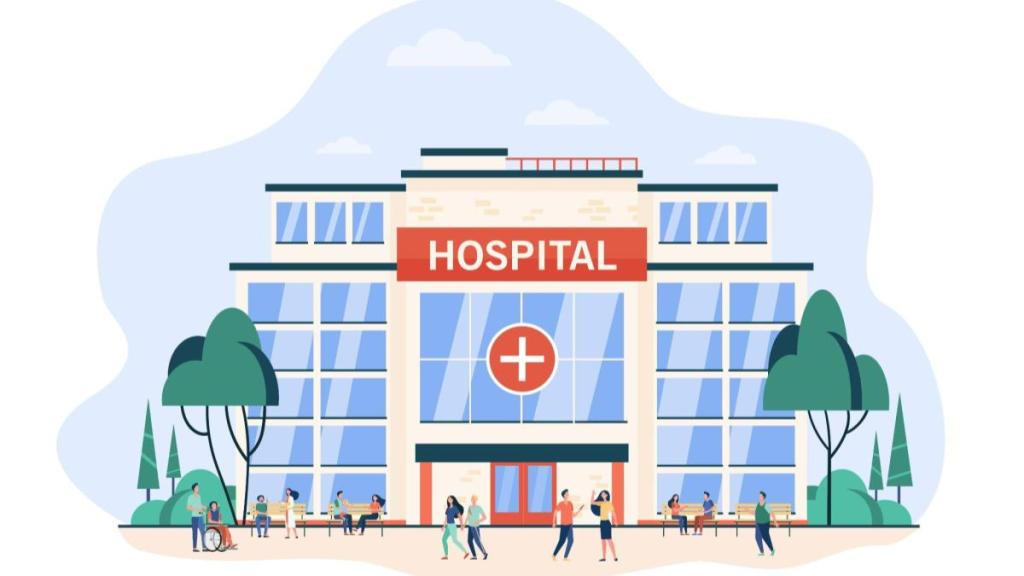Hospitals in the NCR region are looking at a strong demand environment with most facilities crowded with patients and almost all beds occupied. An analysis by Elara Capital, of six flagship hospital facilities in the NCR, belonging to Fortis Healthcare, Max Healthcare, Indraprastha Medical Corporation, Yatharth Hospital, Global Health, and Artemis Health revealed the continued strong demand environment. The management personnel, across levels, were very bullish on the demand environment and exuded confidence that the region can absorb any sort of increase in bed capacity, the report said.
The report stated that top management of respective companies continued to share a bullish outlook, with major expansion plans in the NCR as well as other regions. While Max Healthcare and Medanta shared specific expansion plans, others talked about expansion plans in terms of bed capacity. “None seemed concerned about filling up new bed capacity – they sound confident about a rapid pickup in new beds occupancy and break-even of new facilities in a year’s time,” it said.
No envisioning of draconian price regulation
While management remains concerned about the recent Supreme Court directive on pricing regulation of healthcare services, none expect the government to implement a draconian price control regime that can kill the private healthcare industry. At the same time, they expect some sort of price regulation to come into effect.
The hospitals involved in the analysis said that current social responsibility commitments are being fully met in terms of reserving beds for the economically weaker sections (EWS). Elara Capital quoted the hospital management saying that “even the currently reserved beds are not fully occupied”.
Earlier last month, the Supreme Court of India took serious note of the considerable discrepancy in the prices of medical treatments across government and private medical facilities. The Court strongly criticised the Centre’s failure to enforce the 14-year-old Clinical Establishment (Central Government) Rules, which entail the notification of a standard rate for various medical treatments and procedures, in keeping with the living standards of different regions. The Supreme Court has given the government a month to fix standard rates for different medical procedures.
Elara Capital said that while there will not be a major deterioration in strong momentum, the sector is expected to witness softening of growth and margin in the next 2-4 quarters. “In our view, all-time high valuations do not price this in. Hence, we remain cautious as companies are likely to disappoint strong growth expectations that we believe are built into the stock price. Among our coverage universe, we reiterate Reduce on Apollo Hospitals and Accumulate on Fortis Healthcare. We retain Buy on Shalby, given relatively reasonable valuation,” it said.
Fortis Healthcare: Fortis Healthcare management said that a 50-bed expansion at the Faridabad facility is expected to be completed by June and commercialization is expected by September 2024. Further, the Noida facility expansion of 170 beds is set to be completed in the next year. In the next 18 months, the FMRI facility is set to expand capacity by 250 beds. Elara Capital stated that the company is looking to add 2,000 beds in the next five years and it aims to incur a capex of Rs 12.5 million/bed for its planned 2,000 bed addition.
Global Health: Global Health run Medanta hospital has not undertaken any significant price hikes in the past 1-2 years and per the analysis by Elara Capital, bulk of growth was driven by volume. Management sees margin stabilizing in the range of 23-25 per cent for the healthcare industry overall, it stated. On the Supreme Court’s comments on the PIL based on rate regulations, the company does not expect any stern action. The company expects the government to issue voluntary guidelines with regards to pricing and volume improvement
Max Healthcare: Max Healthcare said that the increased insurance penetration, rising health awareness, uptick in urbanization leading to strong demand, and low bed addition in the previous decade proved to be an added advantage for the existing firms with good capacity. Annually, Max Healthcare takes price hikes of ~5 per cent on the services component, which on an overall basis dilutes to 2.0-2.5 per cent ARPOB. Management expects ARPOB to grow in the range of 8-10 per cent on a conservative basis. “Price hikes and increase in OPD cases have been key drivers for ARPOB growth,” it said.
Artemis Health: The company is actively working to enhance its capacity by 1,000 beds in NCR over the next three years (750 beds in the hospital division and 250 via other asset light models).
Yatharth Hospital: Management targets to scale up ARPOB for its Noida extension facility from the current Rs 32,000- Rs 33,000 to Rs 45,000 in the next 2-3 years. The management expects the Noida Hospital (mature) to grow in the range of 9-10 per cent while for the Noida extension (new) in the range of 25-30 per cent, primarily driven by case mix, said Elara Capital. Management plans to double capacity in the next three years under which it plans to commercialize 200 beds at Faridabad, 200 beds at Greater Noida, another 250 beds at the Noida extension facility and the rest (800 beds) through the inorganic route.
Indraprastha Medical Corporation: Currently, the hospital is based on a land parcel of 15 acres of which nearly 50 per cent is under-utilized, which has the potential to add 1,200 beds. The company is working on a phase-wise expansion under which it has laid out a plan of 300 beds addition in the next 2-3 years. It said that the overall expansion of 300 beds will cost ~Rs 5bn, which will be partly funded through debt and internal accruals either 50:50 or 70:30. The company also has the option to buyout government stakes.

